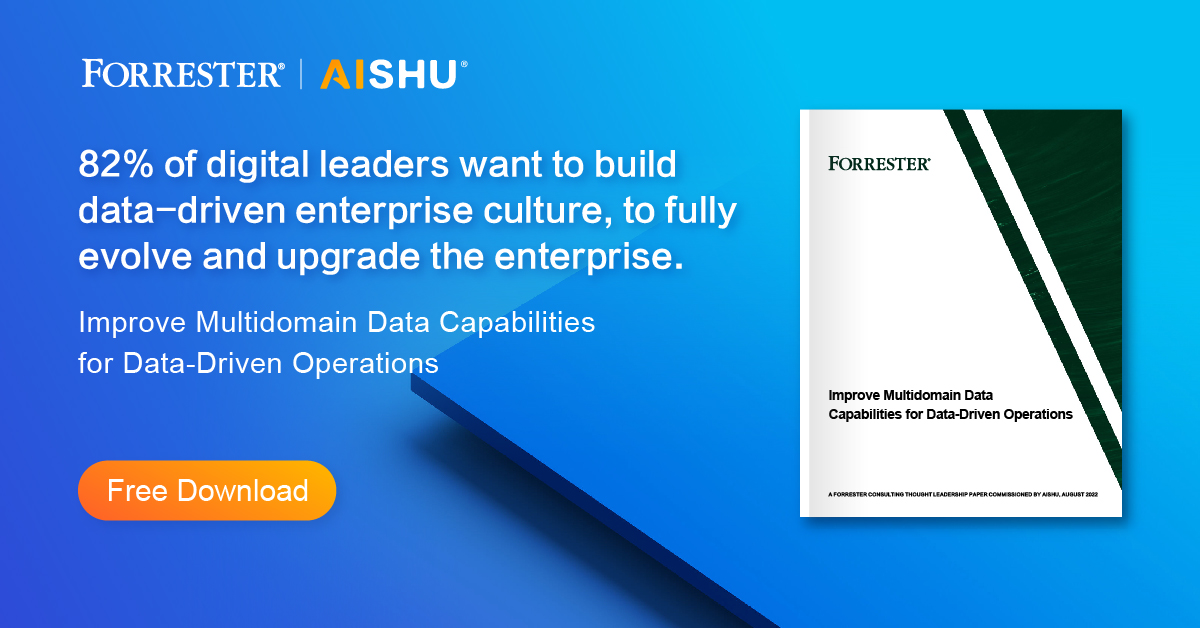Why advanced data and analytics is a key focus of digital transformation?
Recently, AISHU commissioned Forrester Consulting to launch a research in June. We interviewed 214 decision-makers responsible for data management and analytics, strategy, and digital transformation. They showed high expectations of using data to drive transformation. 82% of respondents want to build a data-driven culture, drive the evolution and upgrading to stay ahead of their competitors.
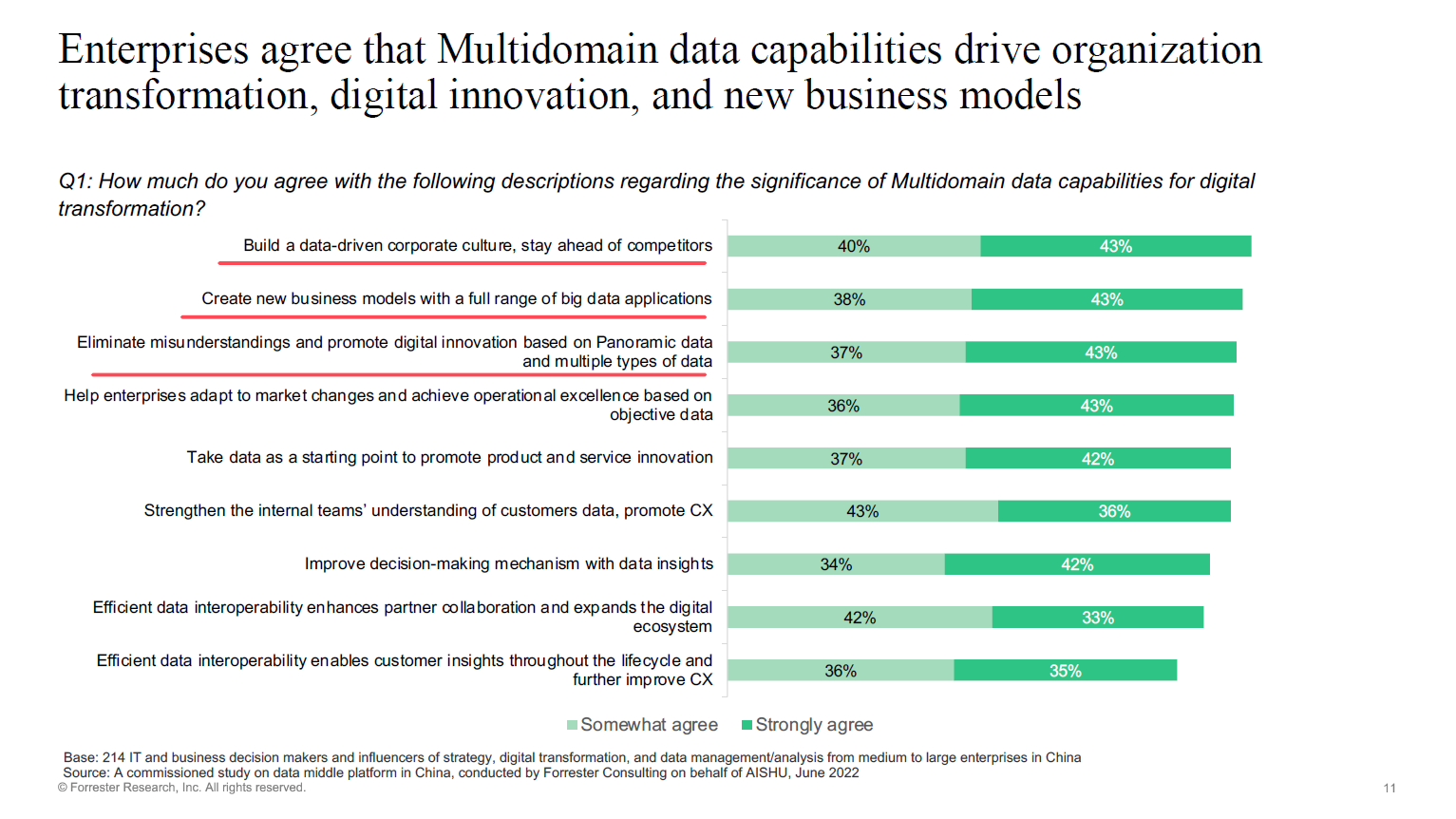
Around 80% of respondents want to use the full range of big data applications to create new business models; to Eliminate misunderstandings and promote digital innovation based on multidomain data and multiple types of data; and Help firms/institutions rapidly adapt to market changes and achieve operational excellence based on objective data. In addition, more than 75% of respondents want to use data as a starting point to facilitate innovation in products and services. Efficient data interoperability enables companies to gain better access to a full journey of customer insights and further enhance the customer experience.
Forrester believes that the four pillars of digital transformation are digital experience, digital operations, digital ecosystem and digital innovation. Data-driven approaches will contribute all the all the four pillars.
What challenges are faced when doing with data management?
There comes a consensus to use data across the board to drive transformation and cultivate innovation. So, how well are the firms in the survey doing with their data management? According to their self-assessment, only 28% consider themselves to be at a mature or complete level in terms of data-driven operations and data-driven innovation. Because to improve data management, all of the dimensions - strategy, technology, structure and process - are essential, and there are many challenges in any of the dimension.
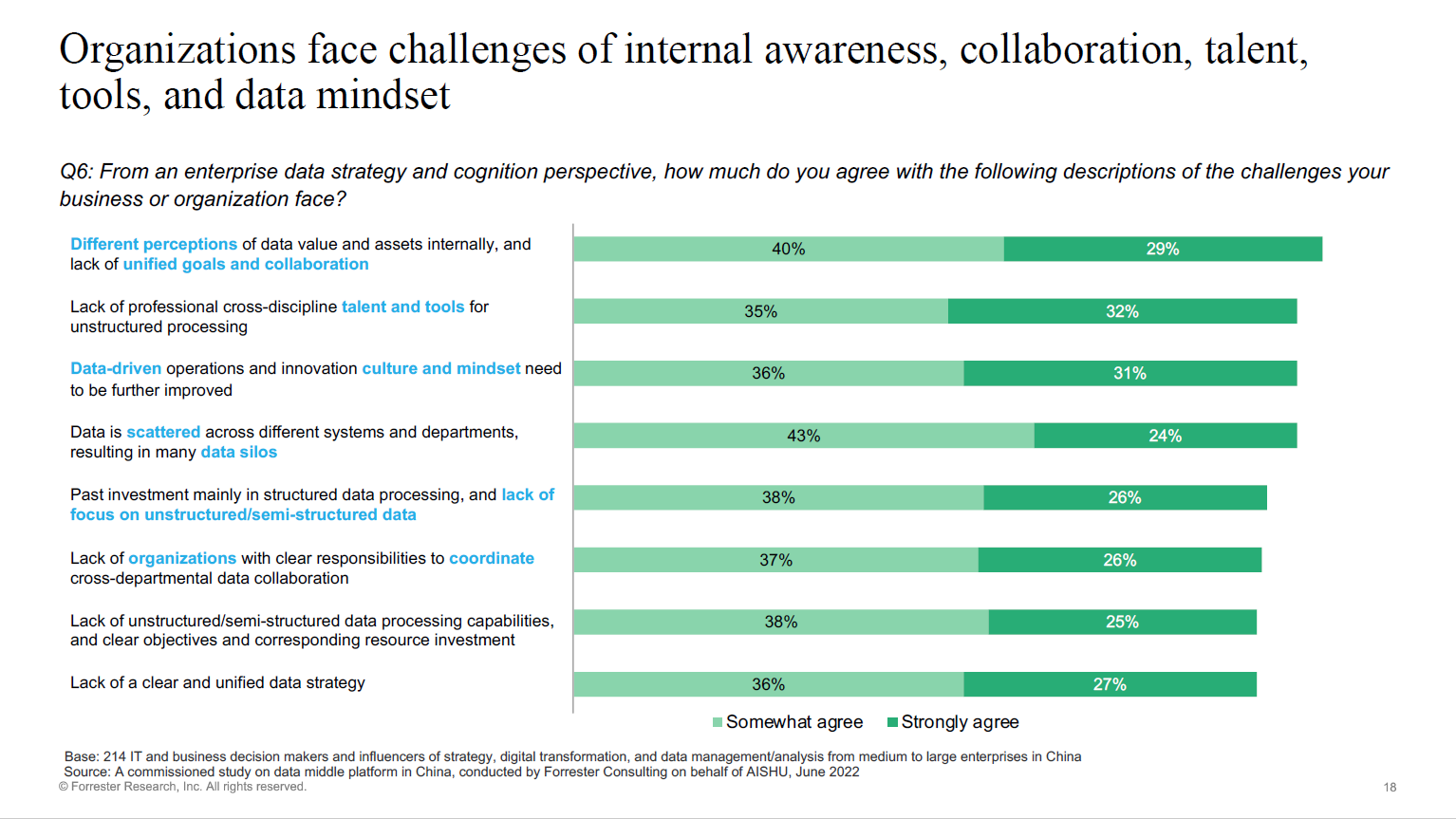
How can we address these challenges and help firms to leverage internal and external data to improve digital experience, digital operations, promote digital ecosystems, cultivate digital innovation and deepen digital transformation? We believe that firms can’t rely on simple, isolated data products and lack strategy, structure and process support. Firms need multidomain data capability, to reshape data productivity.
What is data productivity?
As we all know, there are three basic elements of productivity: laborer, means of labour and subjects of labour.
Labourers is about who is the user of the data within the firm? It cannot be limited to just technicians. As data becomes a common resource within the firms, anyone can consume the data products according to their authority. Therefore, in terms of data productivity, the labourer should be the cross-organization users.
Second is means of labor. For data, what kind of production tools do firms need? Database, NoSQL, data lake, these are far not enough. Data production tools need to have full-stack functions, to access the diversified raw data, utilize data assets, and monetize data with knowledge and intelligence.
Finally, subjects of labor. Firms must be able to handle all scenarios, all types and all-lifecycle data.
Correspondingly, data productivity also has three basic factors: cross organization users, full stack functionality and multidomain data. The combination of the three factors is the multidomain data capability we need.
Multidomain data capabilities, the necessity of building a data-driven organization

The multidomain data capabilities, which integrates multidomain data connection, multidomain data governance, and multidomain data architecture, has become a necessity for creating a data-driven organization. In order to build multidomain data capabilities, enterprises need to start from strategy, organization & culture, and process.
- Multidomain data connection
According to Forrester research, 69% of enterprises believe they need "Ability to manage data throughout full lifecycle" for multidomain data connection, and 68% of enterprises agree that "Ability to acquire and integrate heterogeneous data" and "Introduce appropriate technologies for processing and management of different types of data" are very important. "Provide data interaction and open sharing capabilities" and "Enable efficient aggregation and cleaning of heterogeneous and massive data" are also the focus of most enterprises.
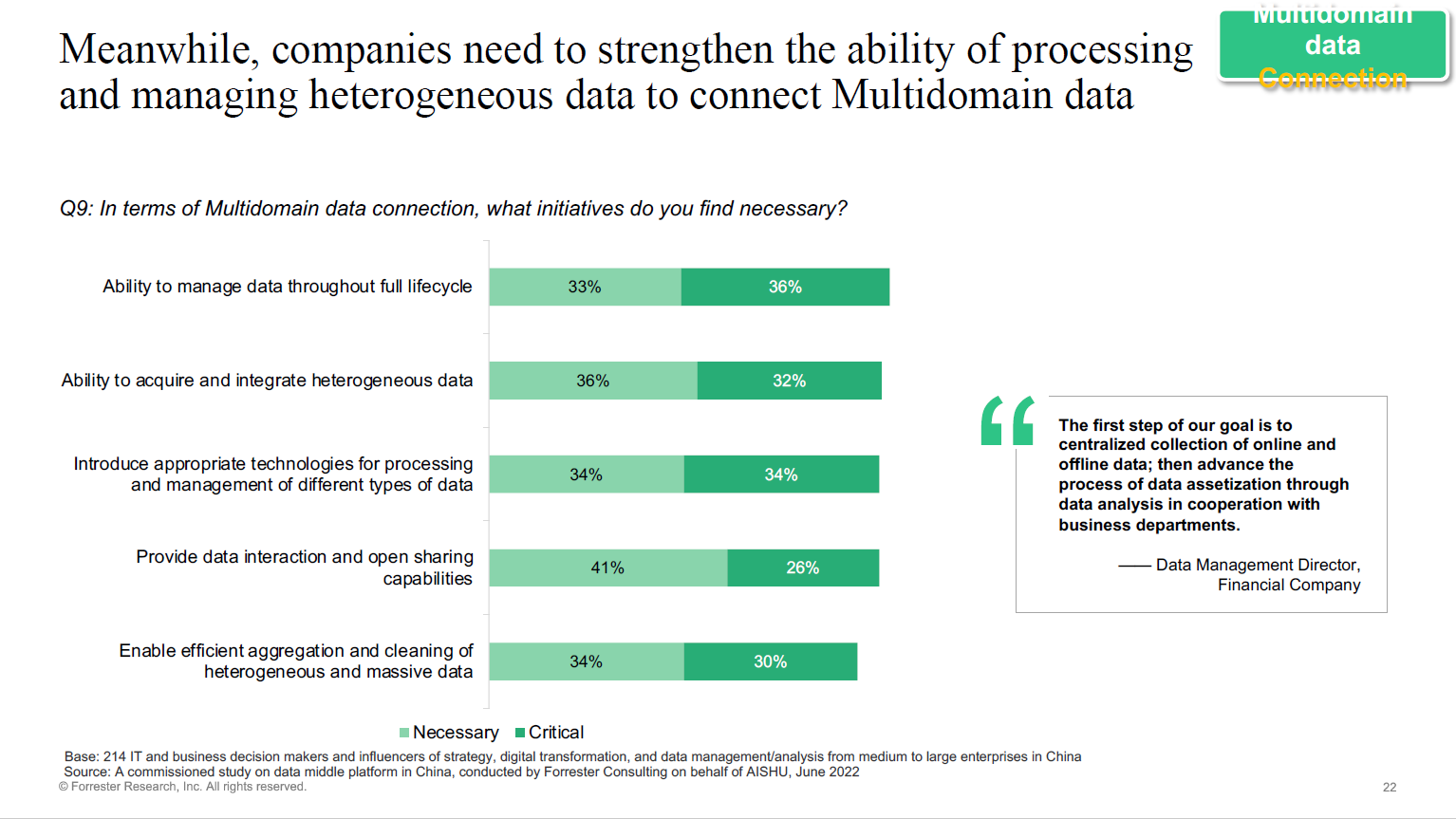
Enterprises need to strengthen the ability of processing and managing heterogeneous data to connect multidomain data.
- Multidomain data governance
Forrester research shows that in terms of multidomain data governance, 88% of enterprises believe that they need to "Enable instant governance by solidifying data governance into business processes", 85% of enterprises agree that they need " End-to-end full lifecycle data quality management" and " Establish a label management system that closely fits with the business scenario", and 84% of enterprises believe that they need to "Incorporate all types of data into a unified data security management system a unified data security management system for all types of data".
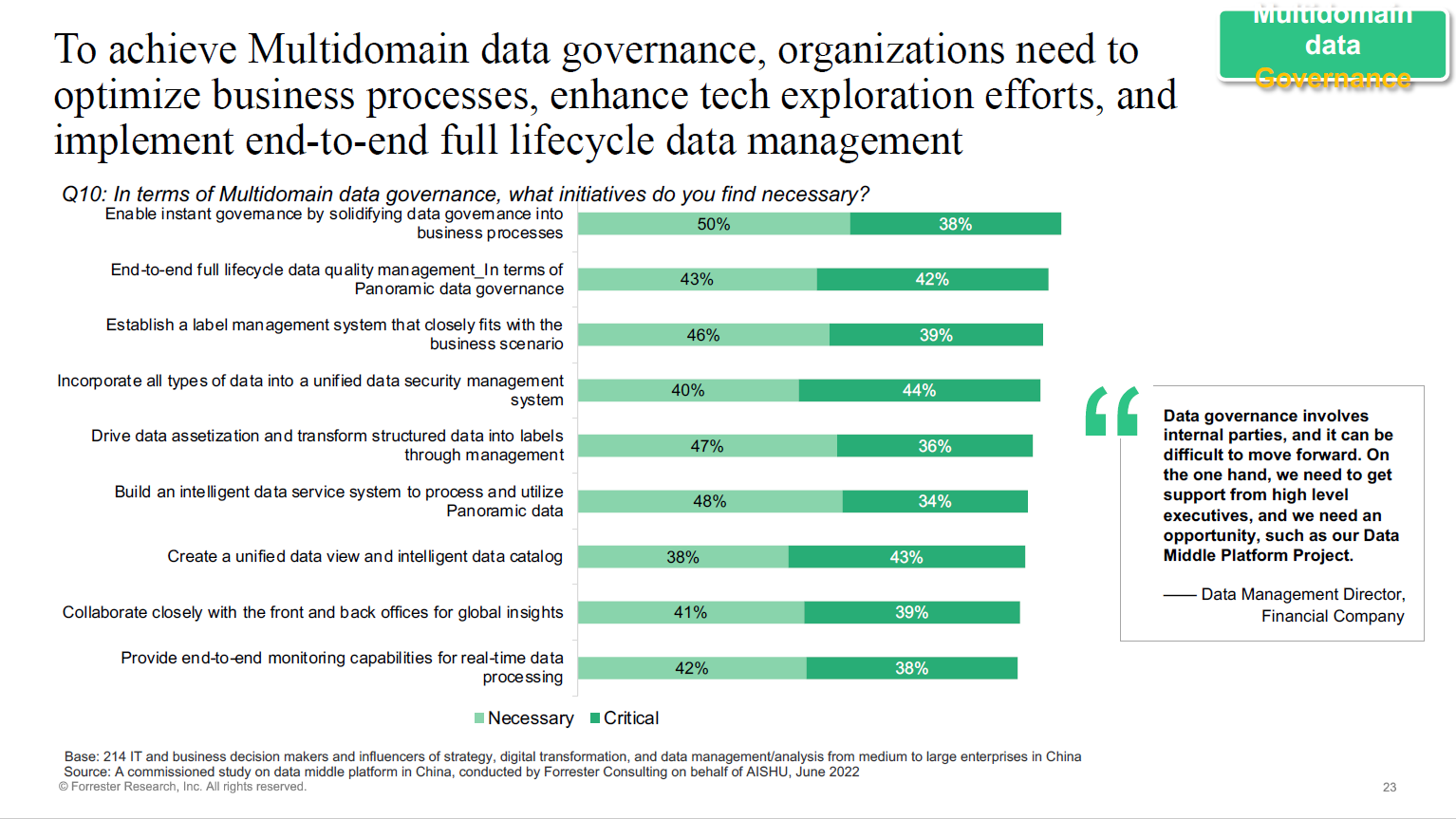
To achieve multidomain data governance, organizations need to optimize business processes, enhance tech exploration efforts, and implement end-to-end full lifecycle data management.
- Multidomain data architecture
In terms of building a multidomain data architecture, Forrester data shows that 64% of enterprises believe they need to "Build unstructured data processing capabilities following the mindset of middle platforms" and 63% agree that they need to "Incorporate data governance and data management capabilities into data architecture design" and "Enable and discover domain intelligence through AI and machine learning".
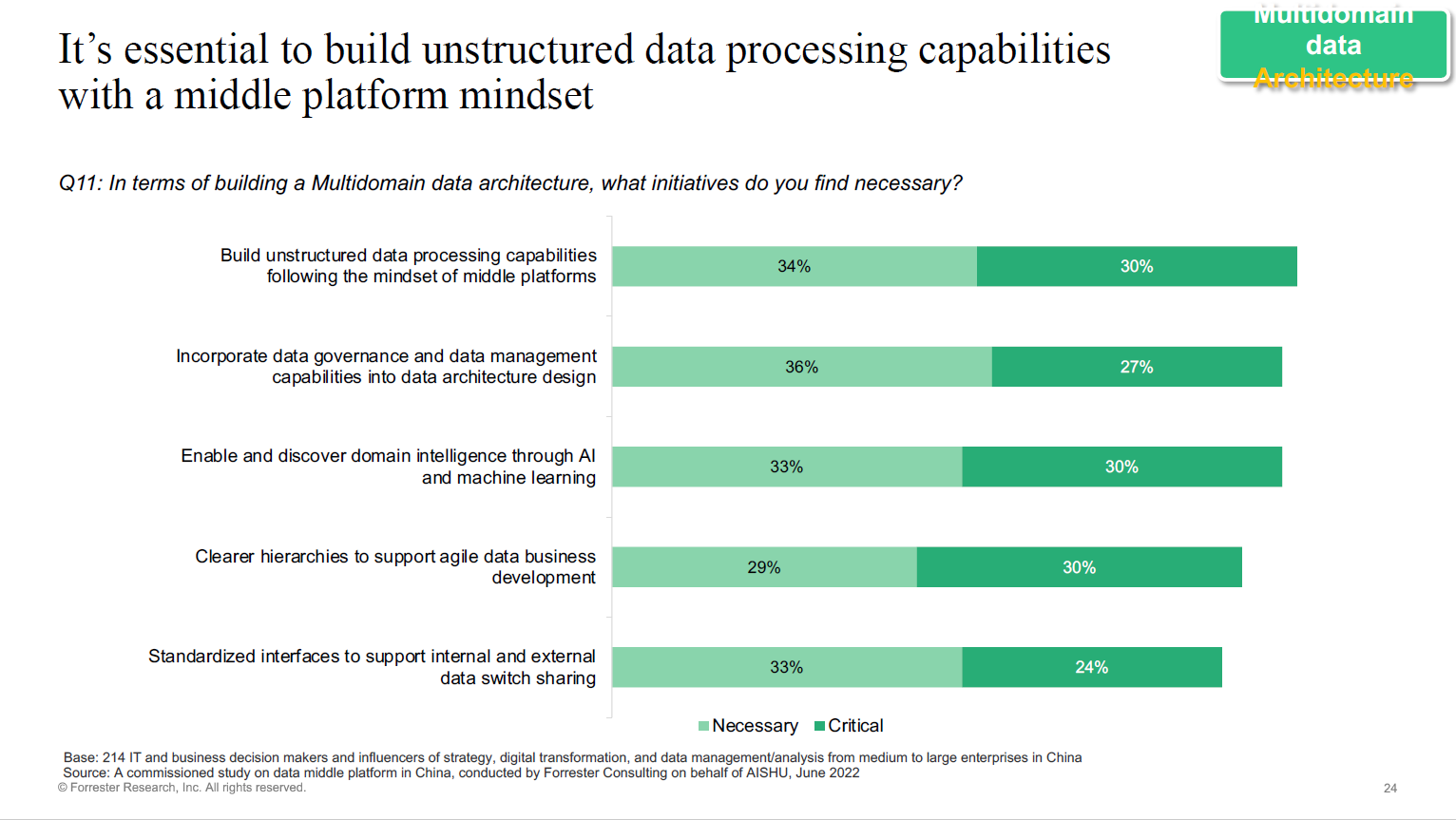
It’s essential to build unstructured data processing capabilities with a middle platform mindset.
Watch the AISHU SMART 2022 replay to hear from the principal analyst of Forrester Consulting about the multidomain data capabilities: https://smart2022.aishu.cn/pc/248?channel=main.

















